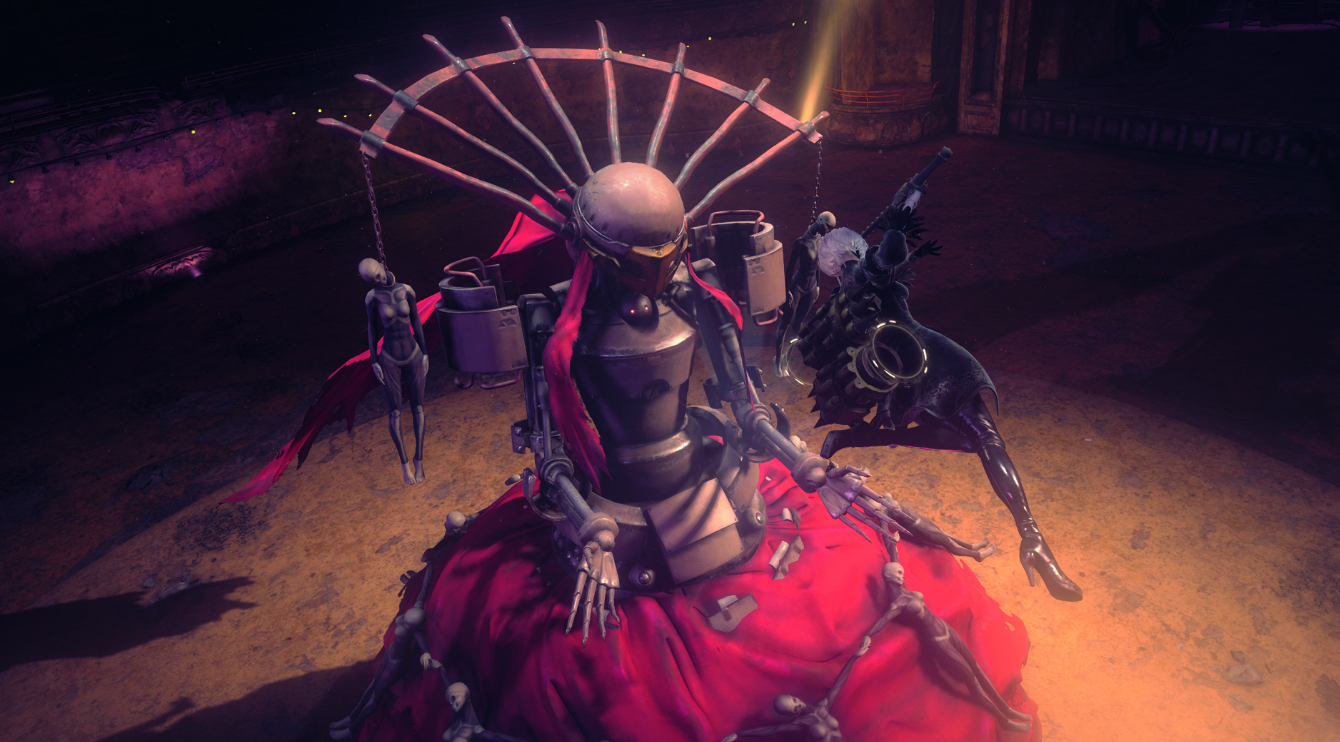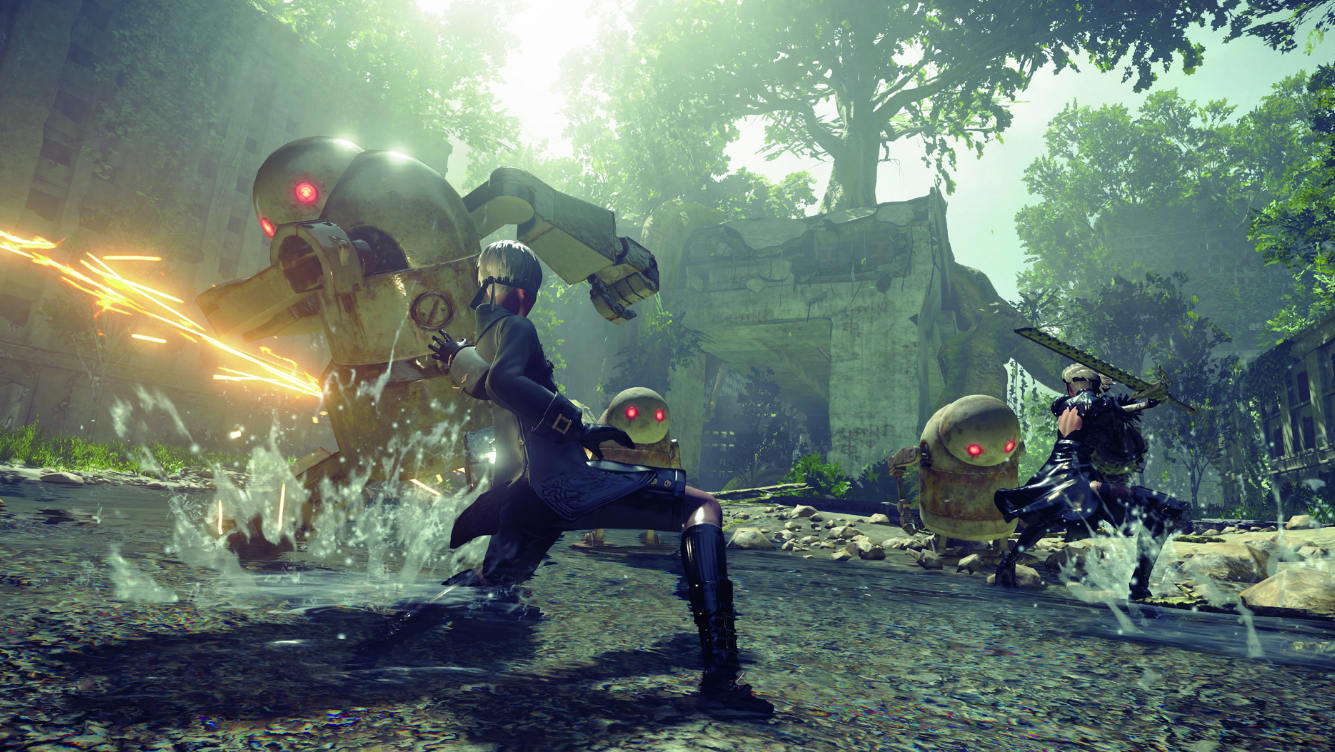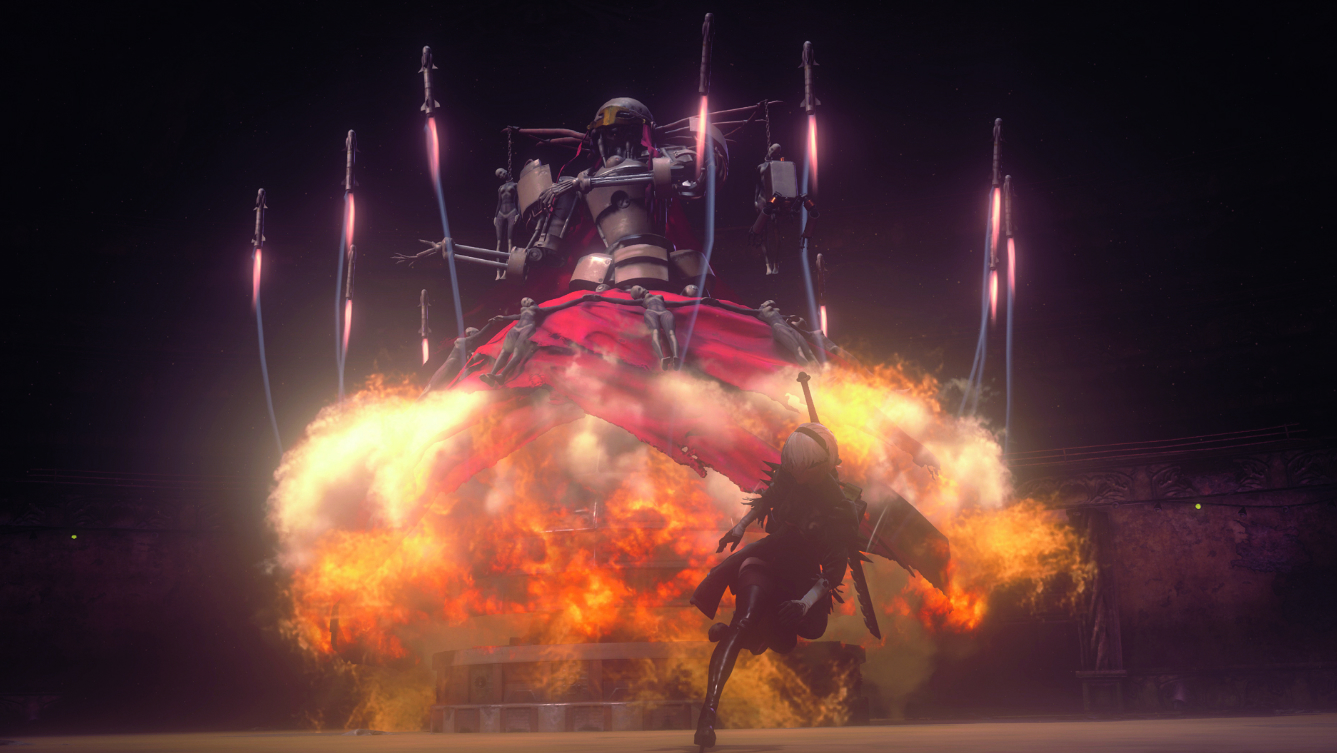Nier: Automata wants to popularise its offbeat RPG lineage
The cult series debuts on PC next year.

This article was originally published in PC Gamer issue 297. For more quality articles about all things PC gaming, you can subscribe now in the UK and the US.
The first Nier was released on consoles in 2010. Its outdated visuals and odd arrangement of ideas torn from multiple genres didn’t win over everyone, but the action RPG’s offbeat tone and ambition earned it a cult audience. These players embraced the weirdness to an extent that Square Enix is taking a second look at turning it into a series, now on PC.
"When I thought about creating the next title in the franchise I thought that I needed to gain something new in order to be successful,” says producer Yosuke Saito. That next title is Nier: Automata, and chief among the somethings new is Platinum Games as development partner, the studio best known for its outstanding work on console masterpieces Bayonetta and Vanquish (and, on the PC side, Metal Gear Rising Revengeance). Platinum’s role is to make Automata’s combat look and feel flashier and more rewarding than that of the previous game, while also extending Nier’s appeal to western players.

Before fans of dizzying combo strings and full screen special moves get too carried away, this is not a dedicated brawler. Saito is delicate in his attempts not to ostracise returning fans of the series. “The image I have is of a game 60 or 70 percent RPG and 30 or 40 percent action. [Automata] isn’t necessarily more action-orientated than previous games in the series, it’s just the action is better.”
My short hands-on demonstrates some progress with the hack-and-slashing element of Nier. Attacks have all the trademark flair associated with Platinum Games, with swordplay and mid air juggling aplenty. Even in isolated sequences of combat, Automata offers more visually exciting action than anything seen in the dull-looking original. While Automata has the spectacle of a traditional Platinum game, it doesn’t necessarily have the same level of challenge—Nier is still an RPG at heart, if you want it to be.
The developers promise difficulty settings that will appeal to players who prefer either approach. Saito goes out of his way to make clear that progress through skirmishes can be achieved by levelling up your characters and assigning them greater skills, rather than forcing players to learn complex sets of inputs and attain perfect dodge and counterattack timing.

The presence of an AI companion helps you navigate fights more easily and quickly. You can assign your partner basic commands that dictate how aggressive they are in a fight, as well as how readily they might start one. Precisely how effective your partner is at dealing damage has yet to be finalised, but the difficulty setting should dictate that to some degree.
The biggest gaming news, reviews and hardware deals
Keep up to date with the most important stories and the best deals, as picked by the PC Gamer team.
This follow-up game is set in a different, more futuristic time than the original. An army of invading machines has taken over Earth, forcing people to migrate to the Moon. You’re an android, part of a resistance group attempting to take Earth back, which is now in a bit of a state. You can explore Automata’s large, environmentally distinct open worlds at your own pace, but each is self-contained within its own borders. So far I’ve spotted sand dunes surrounded by rocky brown mountains with a cloudless blue sky, as well as a dilapidated and flooded play park surrounded by crumbling urban buildings.
Square Enix’s efforts to appeal to both RPG and action players seems wise. Even in Platinum’s weaker recent efforts, like Transformers Devastation, there is at the least a decent combat system to get to grips with. Automata has the air of a passion project: another chance for a less-than-successful series to catch on.

